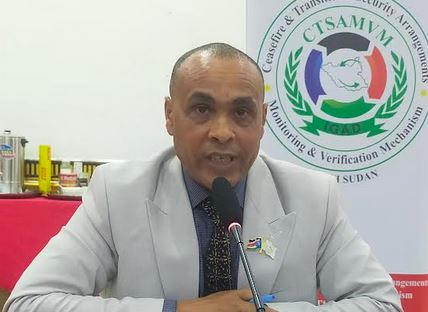The Ceasefire Transitional Security Arrangement Monitoring and Verification Mechanism (CTSAMVM) on Thursday said the delay in the full deployment of the Necessary Unified Forces is to blame for insecurity in parts of South Sudan.
Speaking during the 44th CTSMVM Board Meeting at the Beijing Hotel in Juba, Maj. Gen. Yitayal Gelaw Bitew, the Mechanisms chairperson, said many of the conflicts could be averted by deploying the Necessary Unified Forces across South Sudan and facilitating civilian interaction with a unified security presence.
“The deployment status remains unchanged, with only 8 military battalions deployed thus far, leaving other forces inactive,” he said.
Gen. Gelaw also expressed concern about the tensions between armed youths and South Sudan`s People`s Defense Forces (SSPDF) in Nasir County, Upper Nile State.
“CTSAMVM remains particularly concerned about reports detailing tensions between armed youth and SSPDF soldiers in Nasir County,” he stated. “This region has been plagued by recurrent conflicts, necessitating a lasting resolution to foster peace in Nasir.”
According to Gen. Gelaw, CTSAMVM diligently inspected various training centers and cantonment sites and found critical logistical deficiencies and the occupation of civilian areas and structures by soldiers persists, as observed since the previous board meeting.
He said CTSAMVM will discuss reports concerning alleged clandestine training and recruitment activities conducted by the SSPDF in Central Equatoria State which was presented during the previous meeting. He revealed that the Mechanism was unable to ascertain all the information due to restrictions.
“An update on this report was presented during the 41st CTSAMVM board meeting on 23 April 2024, where the interim findings from the MVT were shared,” he stated. “However, due to restricted access to certain areas hindering additional data collection, no further investigation could be conducted, thus constituting a violation of Article 2.1.10.6 of the R-ARCSS.”




